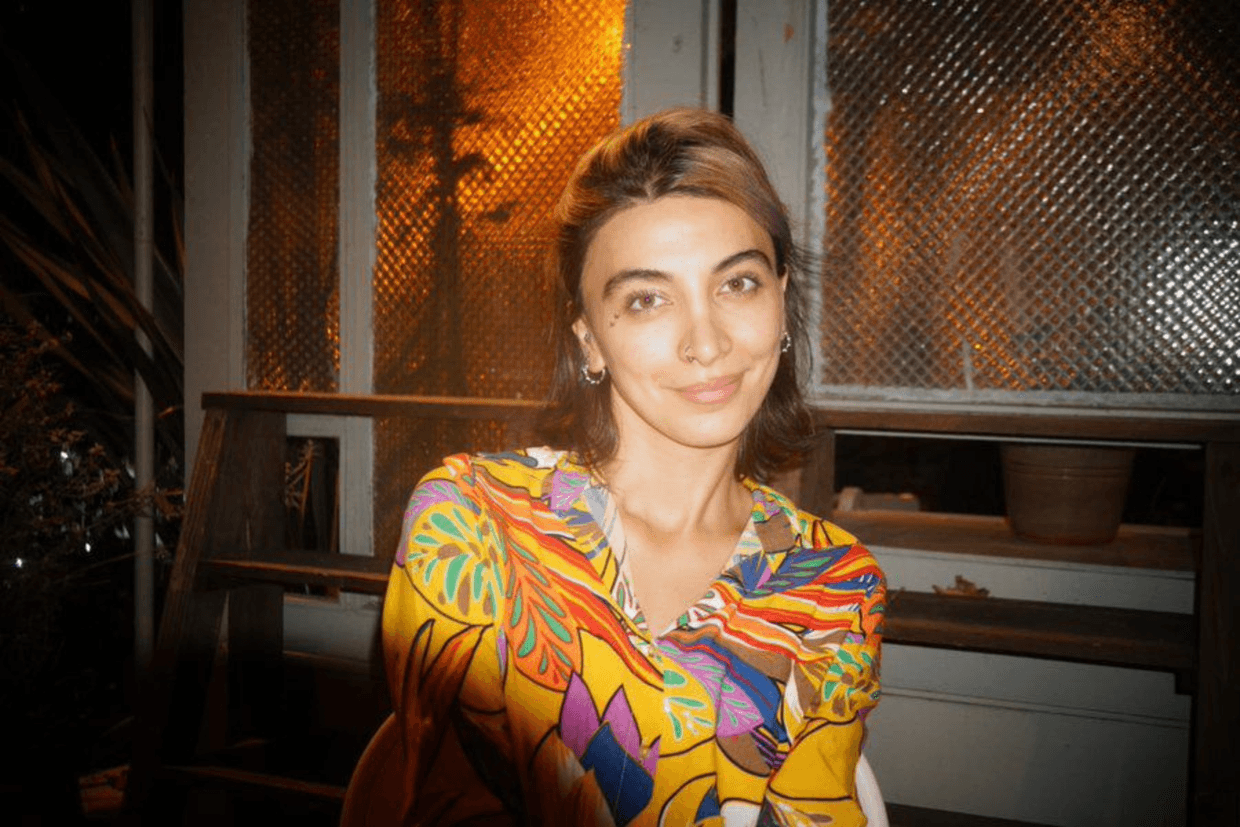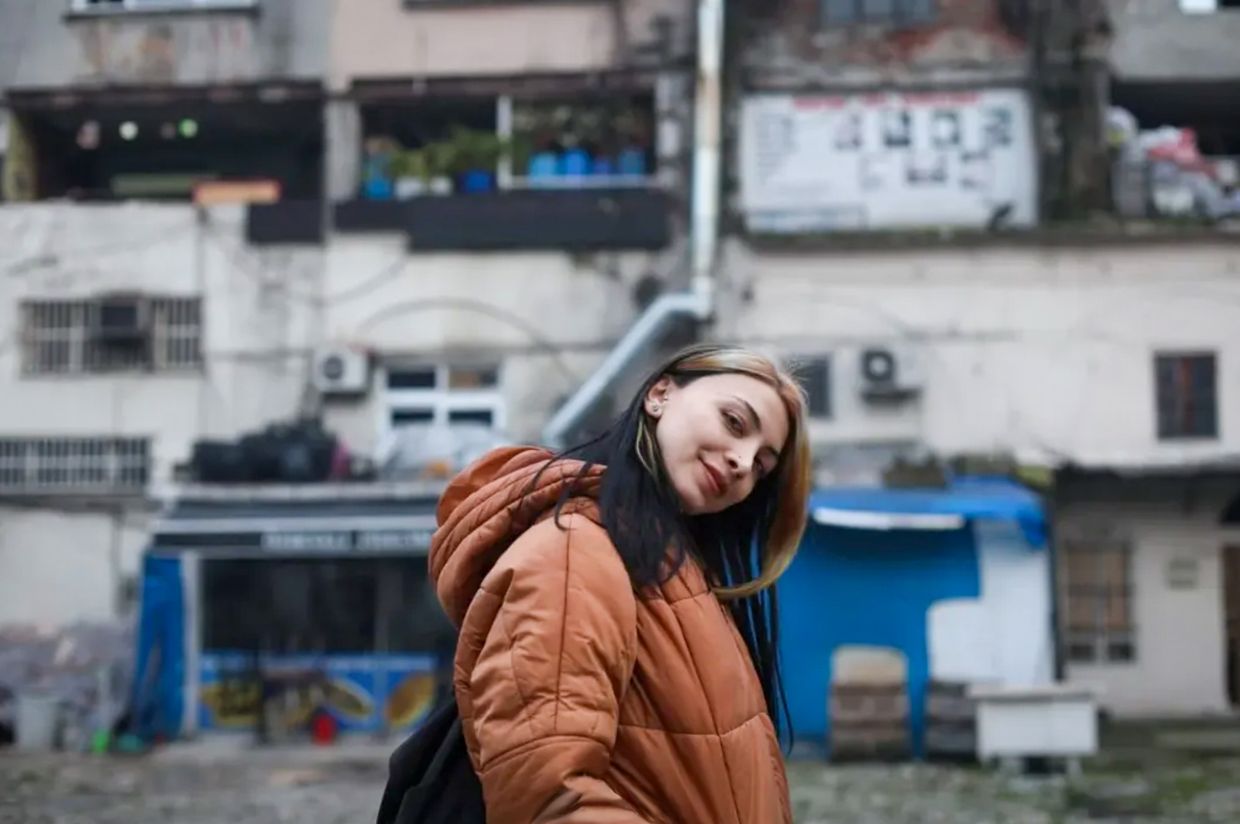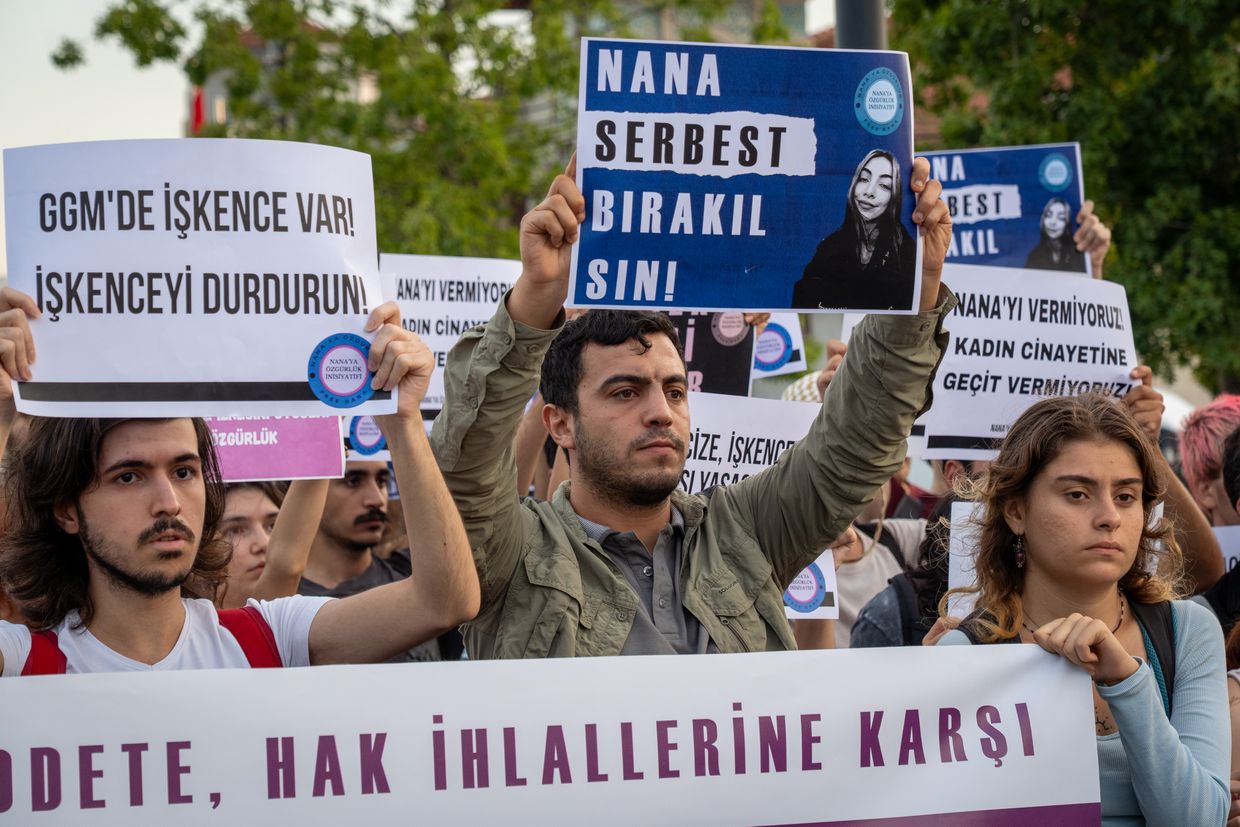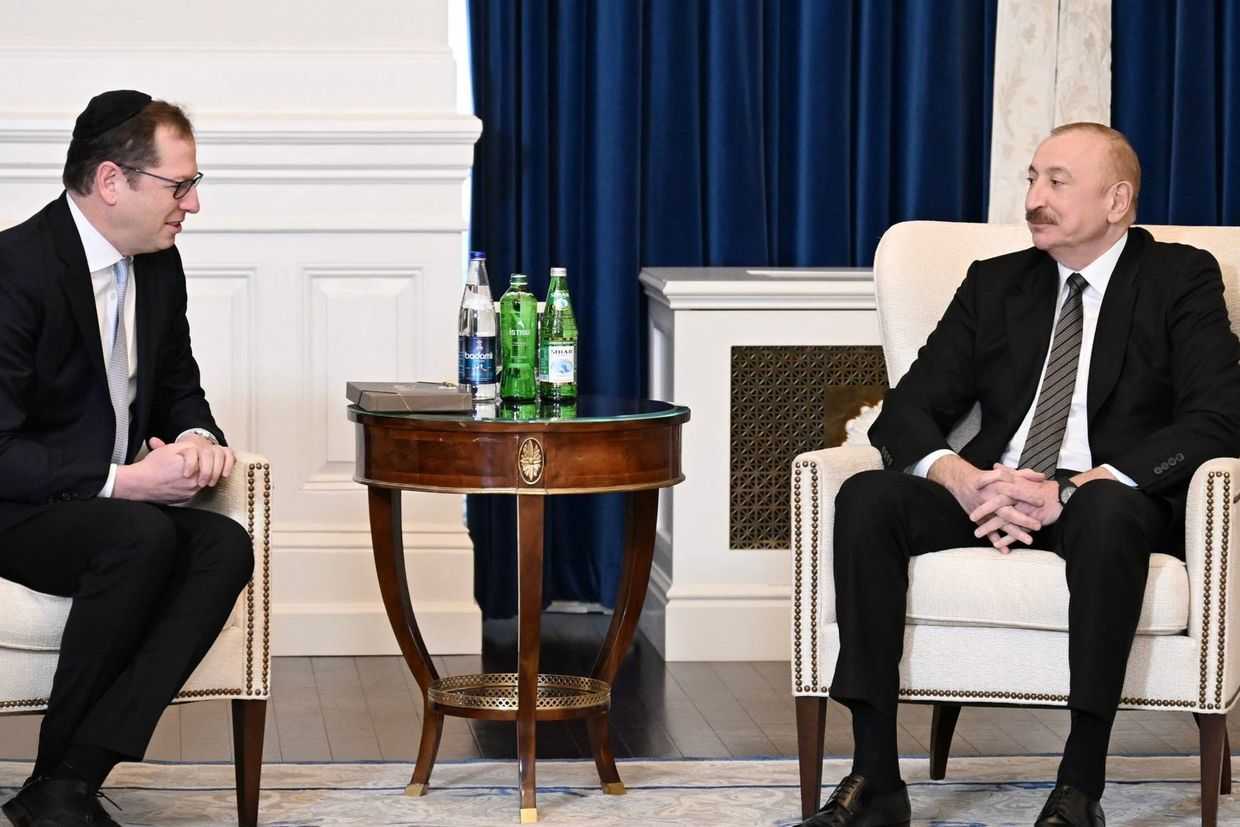The Azerbaijani activist held as a ‘foreign terrorist fighter’ in a Turkish deportation centre
Nana Babazade faces deportation to Azerbaijan, where she says her life could be in danger.

In the agricultural lands of Çatalca, on the outskirts of Istanbul, high walls with barbed wire surround a concrete complex. It is a deportation centre, which temporarily houses foreigners who were deemed unfit to stay in the country by the Turkish authorities, including Azerbaijani student Nanaxanim (Nana) Babazade.
Babazade came to Turkey two years ago, partly to pursue her studies in anthropology at Istanbul University, and partly to get away from her home country, Azerbaijan. From early on, she got involved with political activist groups. The struggle closest to her heart was that of animal rights, but she would also often be seen at feminist, queer, and student protests.
‘I always warned Nana’, one of her friends, who asked to remain anonymous for security reasons, says. He, and others around her, knew only too well the high risk of deportation for foreign rights activists in Turkey.
‘She would pretend to listen. Then at every protest she was once again in the front rows’, he adds.

Police arrested Babazade on 21 August at the vegan café where she was working. According to her testimony, she was repeatedly physically assaulted and insulted by police officers. She said she was subjected to a strip search, which she resisted, only to be beaten once again. Her lawyers argue that a strip search is illegal under Turkish law and amounts to torture. The next day, Babazade was taken to a hospital for a compulsory medical examination. The records show ‘bruising’ and ‘swelling’ on multiple parts of her body.
Babazade was eventually transferred to the Çatalca Deportation Centre, where she is still being held today. It was only four days after the arrest that her lawyers were granted access to meet with her.
‘When she was arrested, she was not allowed to put on her clothes’, her lawyer, Ahmet Baran Çelik, from Lawyers for Freedom Association (ÖHD), says. ‘For the first three or four days, she only had a crop top and shorts. The authorities also verbally assaulted her because of this, calling her names. She was not given the medicines she needed. She was not given food for 24 hours’.

Babazade told her lawyers that soon after arriving at the deportation centre, members of intelligence agencies approached her and asked her to become an informant in exchange for her release. When she refused, her lawyer says, she was once again subjected to physical violence and psychological pressure. It wasn’t the first time they had made such an offer.
‘A few weeks before her arrest, Nana went to the Immigration Office in Istanbul to complete some paperwork’, Babazade’s friend says. ‘She was taken to a room by men in civilian clothes and asked to give information on other activists she knew. “We can help you, we know you are from a good family”, they told her. When she refused, they told her they were “disappointed” and left. We knew then that she was in trouble’.
The authorities arrested and opened a deportation case against Babazade for being a ‘foreign terrorist fighter’ under restriction code G89.
‘This restriction code, G89, is supposed to be applied to [foreigners] who come with the intention of joining ISIS or other jihadist organisations. But in Turkey, they apply it against human rights activists too’, Çelik notes.
Deportation centres in Turkey are infamous for gross human rights violations.
Çelik’s organisation, Lawyers for Freedom Association, works mostly in prisons, he says. ‘When talking about conditions in Turkish prisons, we always say: “If there is one place that is worse than prison, that is a deportation centre” ’.
He highlights that as bad as prisons may be, there is at least some sense of order.
‘There is no such thing at deportation centres, nor is there professionalism among the staff working there. There is verbal and physical assault, torture, the food is bad and [there is not much of it], and xenophobia’, Çelik says.
In 2024, a group of journalists carried out an extensive investigation into the notorious Turkish deportation centres. The findings included systematic rights abuses, including migrants being coerced into signing ‘voluntary return forms’. The investigation also unveiled that not only does the EU turn a blind eye, but it has funnelled hundreds of millions of euros into the system.
At Çatalca, Babazade was also asked on countless occasions to sign a ‘voluntary return form’, which she again and again refused. Though she does not have open court cases against her in Azerbaijan (as far as she knows), she argues her life would be in danger if she were deported, as she has received death threats from members of her own family.
Only last year, there was a similar deportation case to Babazade’s.
Ali Malikov is an Azerbaijani queer activist who was living in Turkey on a student permit. On 25 November, they went to join a protest marking the International Day for the Elimination of Violence against Women. An hour before the protest even started, the police detained Malikov.

‘I was handcuffed behind my back the whole way’, Malikov tells OC Media. ‘After a while, the police removed the handcuffs from the 20-something people who were also in the [arrest] vehicle. But they kept my hands cuffed — I think the police found it amusing because I am trans. My hands were swelling. Finally, when my wrists were turning purple, they cut the cuffs with a knife, injuring my hands’.
Malikov was taken to several different police stations and deportation centres, including Çatalca, where Nana is currently being held. The mistreatment continued throughout. At one point, Malikov could not handle it any more and signed the ‘voluntary return form’ — they were deported to Azerbaijan in December 2024.
The appeal Babazade’s lawyers lodged against the deportation case was rejected by the court on 11 September. They intend to lodge another appeal, but the chances of that being accepted, her lawyer says, are slim.
This article was translated into Azerbaijani and republished by our partner Meydan TV.









